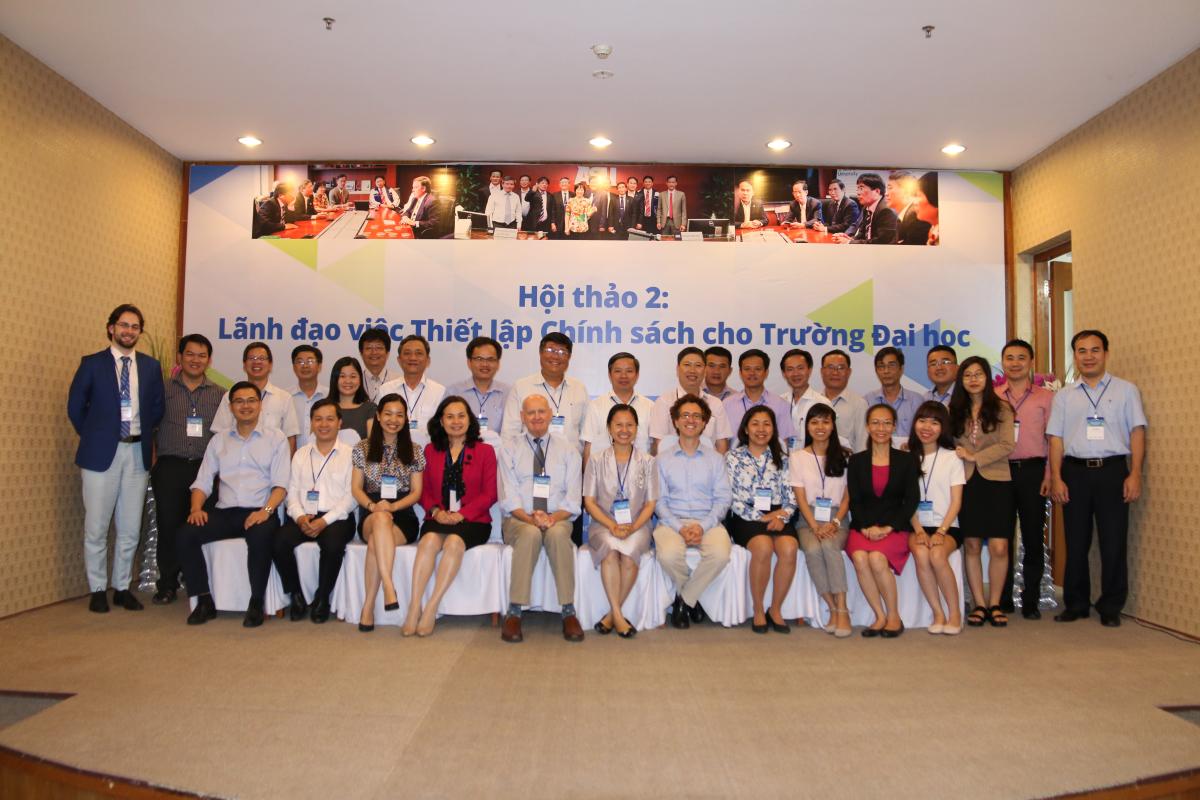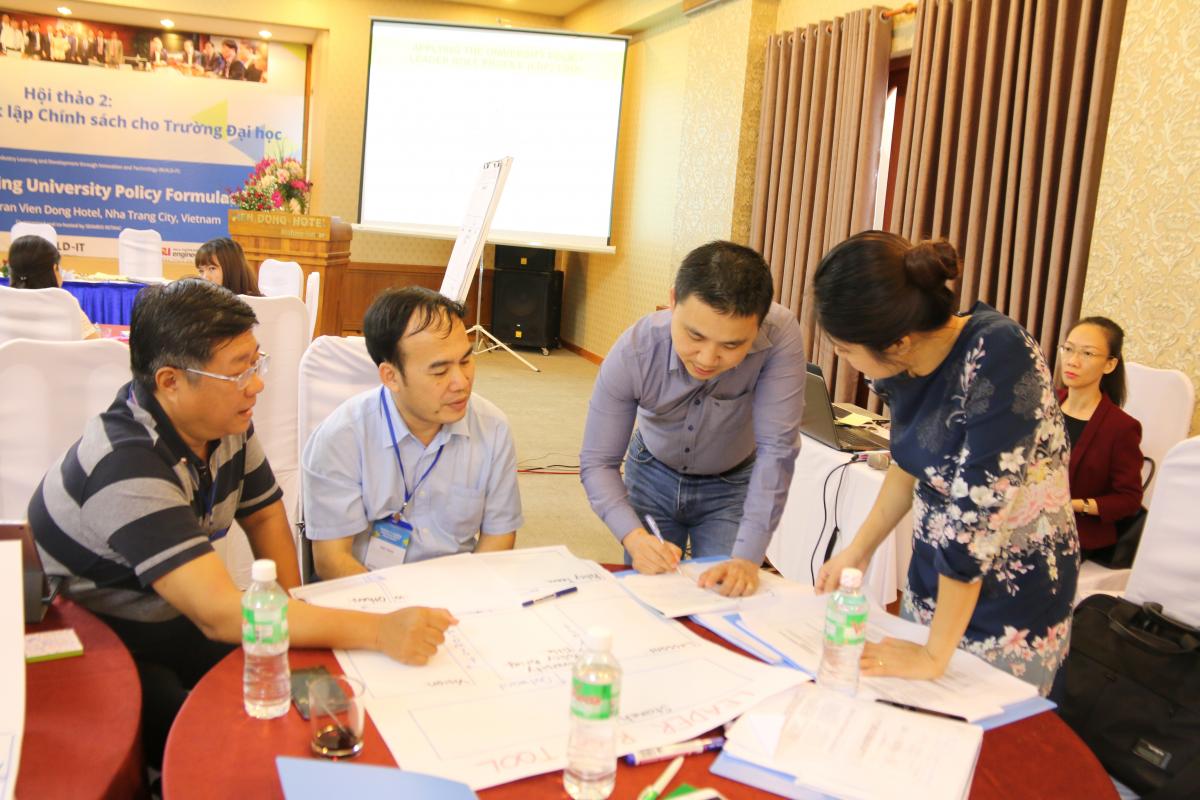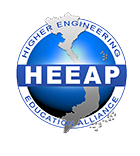From May 9-11, 2017, leadership teams from ten Vietnamese universities gathered in Nha Trang to identify a STEM Policy Agenda for their institutions. Led by Professor Marcus Ingle of Portland State University in collaboration with faculty from the Southeast Asian Ministers of Education Organization Regional Training Center in Vietnam and implementing partner Arizona State University, the seminar was the second in the series and gave participants an opportunity to build on the work of the previous event.

Professor Marcus Ingle (front row, fifth from left) sits for a final picture with the workshop
participants including representatives from the Ministry of Education and Training Southeast Asian
Ministers of Education Organization, USAID, and ASU.
Focused on leadership roles and skills needed to lead policy formulation, leaders emphasized effective prioritization and feasibility elements to design and present policy briefs to their rectors for approval. These briefs address the current “wicked challenges,” a theme used throughout the seminar series to refer to the critical issues faced by leaders in Vietnamese higher education.
The leadership team's proposed policies for critique and feedback from leaders and peers, including mechanisms for market-based tuition increase; leveraging academic program accreditation to accelerate university reputation and ranking; incentives to increase international peer-review publications; job forecasting and student career guidance; project-based learning development for STEM education; enhancing graduate workforce-readiness; and strengthening university-industry cooperation.
Strong participant enthusiasm, engagement and knowledge transfer between university teams included frequent sharing and questioning of one another’s policy issues, advocacy strategies and completed exercises. One of the university vice rectors characterized his experience, “I learned not only how to formulate a policy but also so many innovative ideas of our colleagues from other BUILD-IT partner universities to tackle our challenges.”

Faculty from Danang University of Science and Technology work on a policy brief
together during one of the workshop breakout sessions.
Seminar participants were also joined by two representatives from the Ministry of Education and Training, Dang Van Huan, Official at International Cooperation Department, and Nguyen Thi Thu Thuy, Senior Official at Higher Education Department, who shared updates regarding the resolution on training human resources to meet requirements of Vietnam’s planned, fourth industrial revolution and a decree on university autonomy. At the conclusion of the event, many participants developed policy briefs tailored to the STEM improvement requirements of their universities. The seminar participants were prepared to share these briefs with their university rectors for consideration and policy decisions.
A highlight of the seminar was the sustained, high-level of engagement of the university participants in the learning process. They arrived well-prepared and participated actively in all of the applied learning sessions.
BY MARCUS INGLE & KATHY WIGAL

